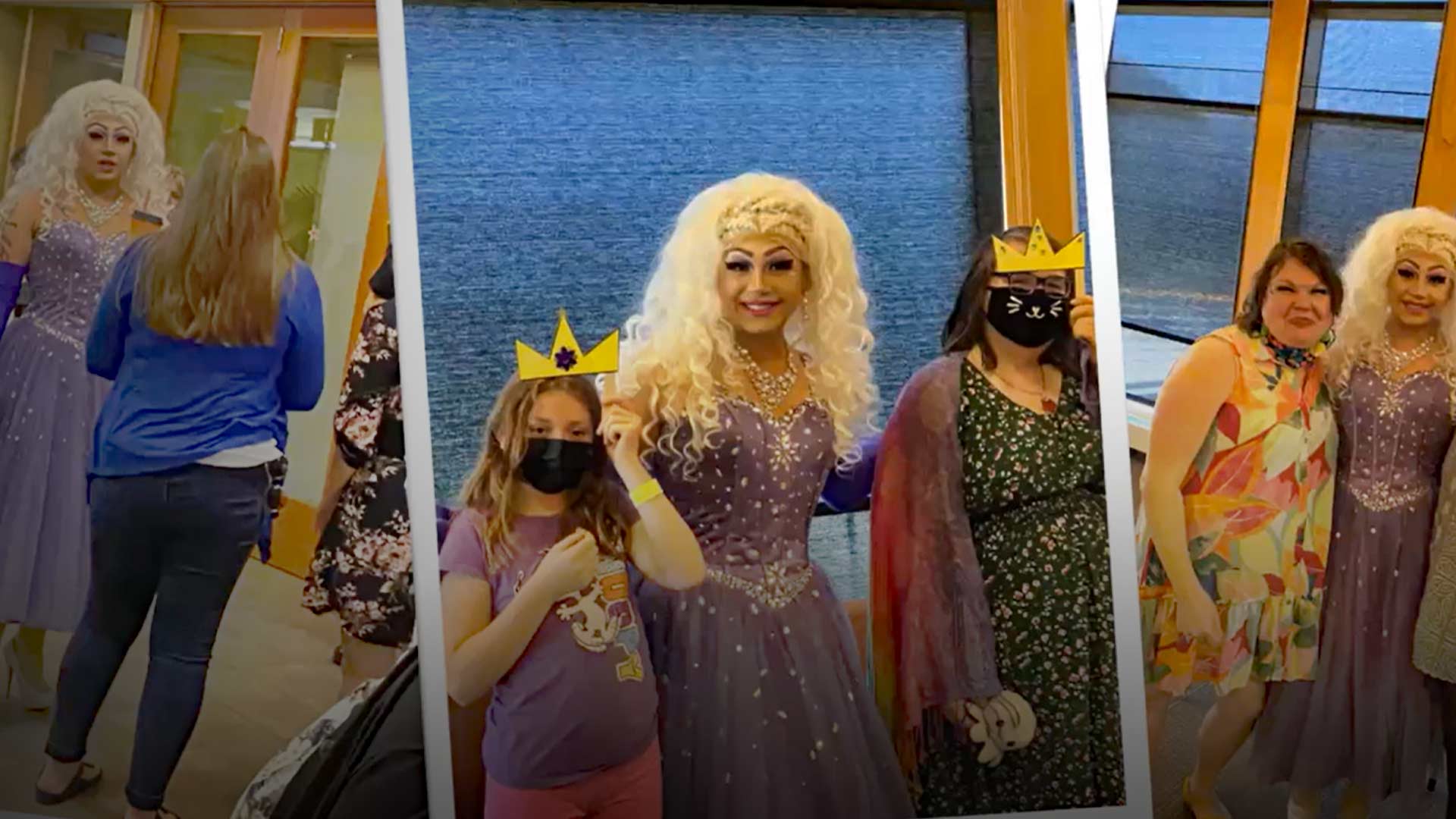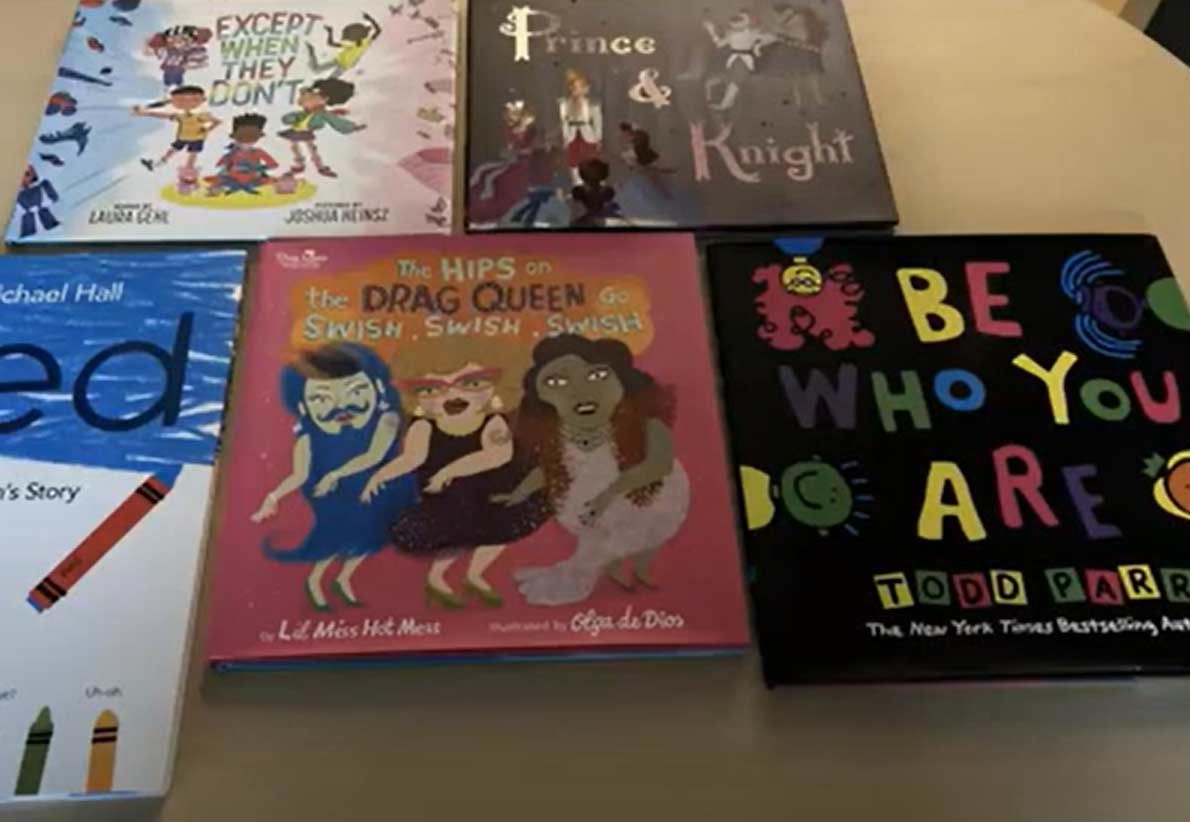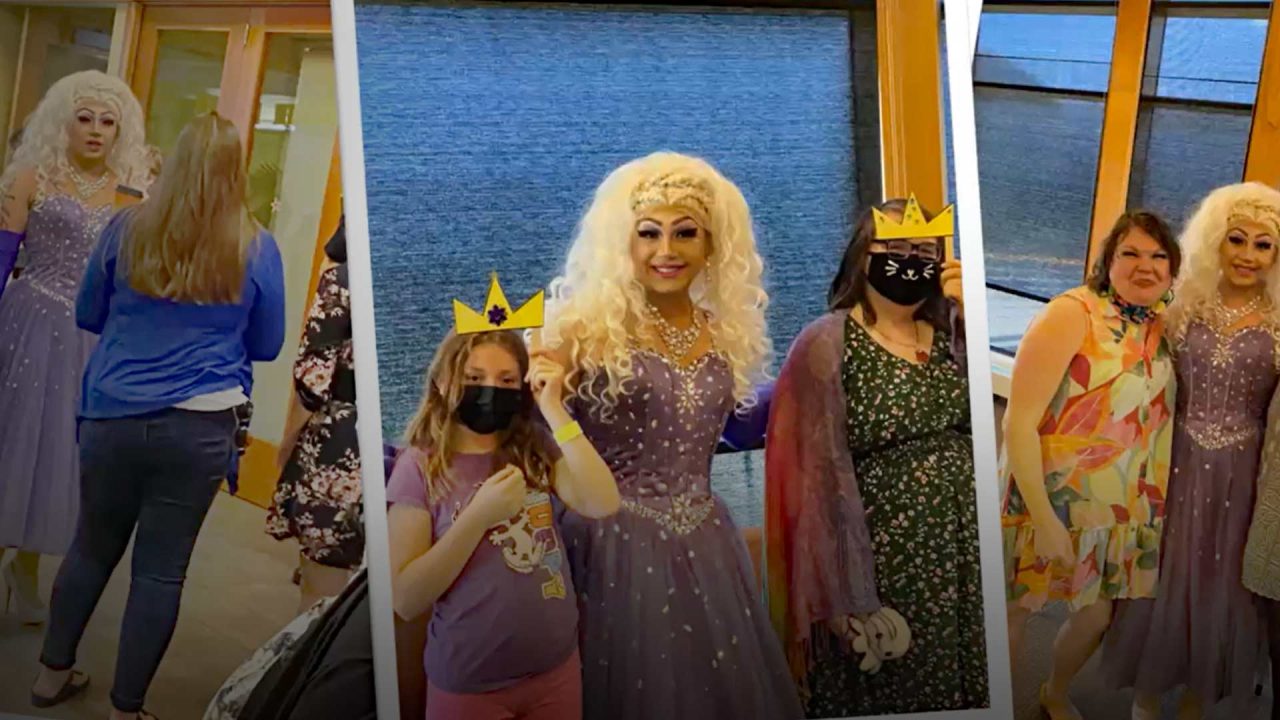
Drag queens, gender-fluidity, sex-themed youth books and difficulties with conservative parents were prominent topics at the annual Alaska Library Association’s conference late last month in Fairbanks. Community and school librarians gathered from across the state to attend workshops, a number of which aimed at equipping them to overcome parents who make “a big stink” about these issues, as one attendee put it.
Additionally, the three-day gathering also taught librarians how to “decolonize” their book collections, while improving access gender and queer-based history books.
Permeated throughout the conference was the notion that librarians are waging an ideological battle against conservative, religious and traditionally minded families. They were characterized as threats to the library’s mission of helping youth and others question and/or undermine long-established cultural, religious and moral values.
As the largest and most influential library association in the state, the Alaska Library Association’s membership includes more than 500 community and school libraries throughout Alaska. The annual conference offers librarians ideas for how to improve their programming, collections and operations. The decision to focus on advancing leftist social ideologies during the 2023 conference comes at a time when libraries across the nation are facing immense controversy surrounding left-leaning programming and sexual books targeted to children.
CHALLENGED BOOKS
According to the American Library Association (ALA), of which most public libraries in the nation are members, 2022 saw the most formal challenges to controversial books since the ALA began tracking this data 20 years ago. Most frequently the challenges dealt with sex-themed children’s books.
While librarians claim to take every book challenge seriously, the ALA website suggests otherwise. ALA President Lessa Kanani’opua Pelayo-Lozada dismissed book challenges outright, claiming they amount to “censorship” efforts that “distract from the core mission of libraries: to provide access to information.” Likewise, Deborah Caldwell-Stone, director of the ALA’s Office for Intellectual Freedom, blasting book challenges as attempts to “suppress the voices of those traditionally excluded from our nation’s conversations, such as people in the LGBTQIA+ community or people of color.”
This disdain for those who challenge books was overwhelmingly present during the Alaska Library Association’s meeting.
During one workshop, by Fairbanks Borough Public Library Collections Librarian Davin Helkenberg, attendees were urged to push back against parents who object to sexualized children’s books.
SEXUALIZED FICTION FOR KIDS

In a talk titled, “The Context for Sexualized Fiction and Its Value for Young Readers,” Helkenberg extolled the “necessity” of sex-themed books for youth 12 years and older.
Sexualized fiction, she asserted, is “meant to teach lessons about sex and relationships … for the reader to carry away the information and incorporate it into their lives.”
Helkenberg told workshop attendees that sexualized books have immense power to influence how teens think about themselves, their gender and their sex lives. Additionally, these books can connect youth to the larger queer community, while normalizing non-heterosexual sex, including how to perform certain sexual acts, she said.
“It’s a gentle gateway into the world of sex,” Helkenberg asserted.
For youth who come from what she called “conservative families,” sexualized novels are a “kind of safe or secret source” for kids. They are “not as obvious as a nonfiction book on sexuality,” she explained, which means “parents would often not question the reading of these materials. The information is kind of hidden within.”
Helkenberg’s personal research indicates to her that that teens want more – not less – access to books containing sexual bondage and sadomasochistic scenes, as well as more novels with detailed and descriptive sexual encounters. She said those books are “not only appropriate for young people,” but they also have the “potential to contribute to their wellbeing.” Helkenberg claimed librarians have a “responsibility” to stock these types of books for young patrons.
No one attending the workshop openly objected to the notion that children should be exposed to highly sexualized books, and several boasted about how they secretly help teens, including embarrassed boys, find graphic sexual romance novels.
DRAG QUEEN ‘TRIUMPH’

One of the most controversial talks was by Ketchikan Library Director Pat Tully, who gave a March 25 presentation detailing the drama that unfolded when her library hosted a drag queen story hour last June. The event was part of a larger library-wide effort to highlight LGBTQ sexuality during Pride month.
Amid frequent laughter and chuckling from her audience, Tully recalled how the drag show and Pride activities drew “quite a lot of controversy” from conservative and religious minded residents in Ketchikan. Tully boasted, however, that she and her colleagues remained resolute in their determination to expose children to these ideas.
The Ketchikan controversy intensified when area residents successfully gathered signatures to put forth a 2022 ballot proposition aimed at partially defunding the library. While this measure narrowly lost, it caused considerable consternation among library staff and their supporters.
“Luna, as you can see was magnificent as a sparkly princess,” Tully told the librarians as they viewed images of the drag queen event. “Small children looked at her in wonder.”
Tully noted that tensions remain high. Earlier this year, the library faced the first book challenge in more than a decade over the title, “Let’s Talk About It,” a children’s book that teaches minors how to create digital porn, engage in anal sex and explore sexual fetishes. Tully refused to pull the book and the library advisory board backed her up with a 6-1 vote to keep the book.
Despite stirring considerable controversy since taking the helm of the library in 2017, Tully has no plans to dial back her activism, especially with regards to pushing controversial children’s literature.

To this end, she launched “Celebrate Pride” events last summer with prominent LGBTQ displays, “Pride Family Wonder Bags” on gender identities, and a “Read the Rainbow” book challenge that included prizes for kids who read certain LGBTQ-themed books.
The grand finale occurred in June when the library invited a local male high school teacher – who regularly doubles in gay bars as “Luna” the drag queen – to perform during the children’s story time event.
Library staff worked with Luna in selecting books about drag dancers, gay romance and gender fluidity to read to the children.
Despite emails, phone calls, letters and in-person visits from concerned parents, Luna showed up in a wig, make-up and dress to interact with the children.
“Luna, as you can see was magnificent as a sparkly princess,” Tully told the librarians as they viewed images of the event. “Small children looked at her in wonder, and many families asked to take pictures with Luna after the program.”
Tully praised Luna and her staff for being “amazingly brave and steadfast.”
“And the library staff went all out with their outlandish costumes,” Tully exclaimed. “Most members of our staff – with the exception of myself – can rock a crazy costume,” she added with a chuckle.
“There wasn’t a single conversation that ended with any of us dramatically changing our minds,” Tully said of her interactions with Ketchikan residents.
In total, 105 children were taken to the event by parents or guardians. Tully called the event a “triumph,” and dismissed those who said it was confusing and harmful to impressionable children.
“I remember one phone call especially,” she said. “A man, who after unsuccessfully attempting to explain to me that a woman was a biological, and not a psychological concept, yelled at me that I was wrong and illogical, and the damage that children would suffer would be my fault.”
“It was wearing to be sure,” Tully said of the conversation.
NO BIBLE STORY HOURS
Towards the end of her talk, she noted that a couple of groups have since asked if the library would formally sponsor a bible story time, just as it did drag queen story hour.
Tully said she conferred with the borough attorney and decided that, because the library is a government program, it could not sponsor an event that included a particular religious perspective. She suggested, without explanation, that sponsoring Bible story time would violate the First Amendment, which states that, “Congress shall make no law respecting an establishment of religion, or prohibiting the free exercise thereof…”
Instead, the library agreed to provide a meeting space for the bible story event, without formally sponsoring or funding it. To date, no group has held a Bible story time, Tully said.
Her talk ended with several take-aways, including the observation that dialogue and discussion with concerned citizens often fails to change minds when it comes to Pride celebration and drag events for kids.
ALASKA WATCHMAN DIRECT TO YOUR INBOX
“There wasn’t a single conversation that ended with any of us dramatically changing our minds,” Tully said of her interactions with Ketchikan residents.
She then encouraged Alaskan librarians to double down in the wake of controversies, and vigilantly “guard against the tendency to self-censor.”
“The library is not a place to be safe from the world,” Tully concluded. “After all, the objectionable idea of today is often the wisdom of tomorrow.”








29 Comments
Who would have thought that our libraries would be taken over by perverts, bent on perverting our children by taking away their innocence. I’m so glad my son and I were able to enjoy story hour at the library before this all started. You have to wonder why these perverts are so hell bent on sexualizing children.
Yes, Miss Helkenberg, it is a gateway: to porn addiction. But, who really cares? These kids can still go to UAA and get a degree in how to sell pot or get a government job under Dunleavy without a college degree. So, who cares about actually educating these kids? They’re going to get swallowed in the vortex of an aimless life, drifting from one high to another, from one sexual addiction to another, childless, alone, unable to connect to others, unhappy, unfulfilled, inhumane. But who cares? Their fate doesn’t affect me or my job and my pursuits of pleasure, so, who cares?
Right on target! Dunleavy is front and center in this! Sacrifice your children to the gods of this age! How long will people be sickeningly stupid?
Where were all of those who objected to this crime against children when the governor introduced HB105? The perverts were in Juneau in droves, but little support from parents. Quit blaming Dunleavy when he received so little support in trying to put parents back into the picture. As for the librarians, the Alaska Constitution has laws against pornography. So why aren’t they used?
Shelia your question of why aren’t the existing laws used needs to be force fed to your uncle Mikey!
The evil is hell-bent on getting all of our children! So much for laws. Does the evil care about laws? Apparently not.
Well. And Anchorage can’t figure out why the population is dropping down and schools are losing children. You teach this crap too. There is a time and place and this is neither. All this is, is some LGBTQ+ activist looking for fresh new meat. I’m so happy I don’t have kids in schools on Alaska. Good luck parents!
Books on sexual bondage and sadomasochism are appropriate for youth? It isn’t appropriate for anyone, and presents a twisted perverted perspective of human sexuality and intimacy. And this is thought to be healthy sex education? The Fairbanks NS Borough librarian seems to be missing a fee proverbial marbles and I bet she is not a parent. Then add in the rest of the vocal crew. How could so many ‘professionals’ be so deluded and messed up? Time to bring back private lending libraries.
These classic books were banned for basically because of graphic sexual content but were not even close to the books about Queerness and transgenderism. The allowed books are hard porn compared to these great classics.
The Great Gatsby
The Catcher in the Rye
The Grapes of Wrath
Providing porn to children remains illegal in this state. When will we begin to enforce the law?
Not until we elect a governor that stands up for kids by appointing an Attorney General that cares more about our children’s future than oil/carbon credits!
Fairbanks you have got to be a blood relative! My words exactly! Let’s have coffee! Keep it up!
Homosexuality is immoral and a sin. Just because America is falling into a Sodom and Gomorrah type of society doesn’t change right and wrong.
The beast govt knows that the spending has destroyed the future so they push satanism and fatalism Anchorage is a rotting appendage. Move out and let it die. Dunleavy is just a yes man for the satanic,,, there is no hope for him.
Perverts should not be talking to children.
Perverts, at the minimum, should be in a mental institution … Not run by perverts.
Pastor Mark Driscoll of Arizona has some great sermons addressing this topic. Men should be strong, protectors, defenders of Truth. All of this is a ploy to make men weak and powerless in our society. Weak men make for a weak country. Our children are being lied to with perversion and sin. #Homeschool
Agree, Take your kids out of these schools. Your the parents, not this woke school teachers bs
You rubes are getting riled up over nothing. That’s part of their plan. Keep people fighting a culture war they have no stake in, instead of a class war.
Actually, this is all a distraction from bigger things happening. But, in the meanwhile, we need to keep defending our families and our children who are our futures.
Central Bank Digital Currency – is it the Mark of the Beast? I do not know, but I feel like all of these other things happening are to distract us from the universal CBDC that is rolling out.
https://rumble.com/v2la58k-4.30.23-awk-interview-cbdc-push-is-here-tangible-assets-needed-pray.html
Wake up parents!! You reap what you sow!!! Teaching these perverted ideas to your children is a disgrace! You’ve let the wolf into the henhouse!!!! I’m mortified how the community has let perverted ideas influence young children- it’s called grooming!
For some reason, your legislators are not interested in tightening up the laws regarding child abuse to bar this insanity. To paraphrase a popular meme; The question is not why are parents taking their kids to see men dressed as women, but rather why are men dressed as women wanting to perform in front of children?
There is no requirement to have these ‘performers’ provide a NCIS criminal background check before performing before children. Further, there is also no requirement that such performances be made in professional, age appropriate dress and conduct. Too many of these ‘guys’ have records and are registered pedophiles. Parents are too trusting and sacrificing their kids on the alter of blind acceptance. They are not parents. They are cowards practicing child abuse. The kids are like candy to these sick clowns. The school staff and librarians promoting are more than likely either hard core Left commies or lesbians.
Only the parents can stop this, the Legislature has conceded the battle to the perverts. AS 11.41. 436, AS 11.41.452, AS 11.61.128 are all applicable and complaints should be put to the prosecutors to stop this abuse. I bet a pedo will be found at each of these “performances”. LGBTQ is after the kids, the Dems gave them the kids to use as sex toys. Look at what’s happening and tell me that I am wrong about all of this. You can’t. Parents, act in defense of your kids.
if all you do is complain, nothing will change. Dont support public education. fight the funding. Call the borough mayor, NEVER APPROVE BONDS. Check the books out, never return them, pay the fine. Call and write the librarians and share your displeasure. set up appointments with school principles, meet with them and folliw up monthly. Eat thier time up so they can not focus on anything else. if all the parents disgusted by whats going on did this it would end. otherwise, just hot air.
Parents need to start suing the school district and the individuals for not stopping this illegal and immoral perversion of the children.
Thank you Larry for clear concise and accurate thoughts! A revolution is needed
What is wrong with these librarians? They are being allowed to use their positions of influence to peddle smut and steal innocence and future sexual integrity from our children! They should all be fired. Past time to remove your kids from public schools.
They apparently won’t get fired anytime soon. They will continue to accrue all their benefits. They will continue to receive their pay checks and raises. What are you going to do about it? Pound your fists on the table! Yell at your spouse! Give your 3 minute testimony at a meeting of likeminded constituance. Vote, for what more of the same?
What I am pointing out is that we have lost the war. We the people have surrendered long ago and now are suffering the consequences of that surrender. Getting back what is rightfully ours will cost us greatly! Yes even the loss of employment, maybe even jail time. Our metal is being tested, and so far it appears to be greatly fatigued!
This truly is the beginning of the end. Located in New York, Chicago, Los Angeles, and other liberal strongholds, these cities have publishing houses turning out scores of children’s books each month sexualizing youth and perverting the most innocent demographic in America…our youth. They are as dangerous to our youth as a two-headed rattlesnake. They also own the marketing and merchandising power to promote their smut. If there’s even been a time to draw a line in the sand, this is it. These massive publishers own the media complex, the outlets, and are extremely sly in getting their trash out to the public schools, public libraries…even the military schools. They have the momentum, the desire, and the capability to destroy and confuse our youth. Parents and grandparents must rise up to fight this. Now is the time.